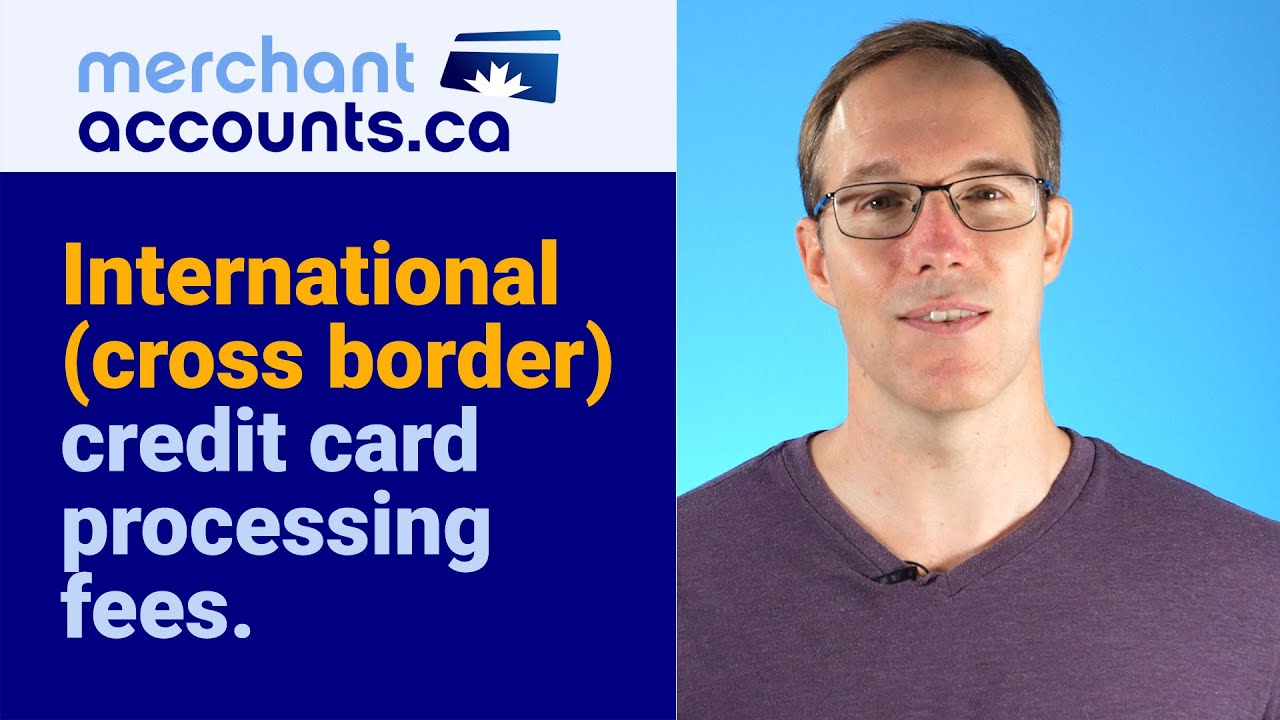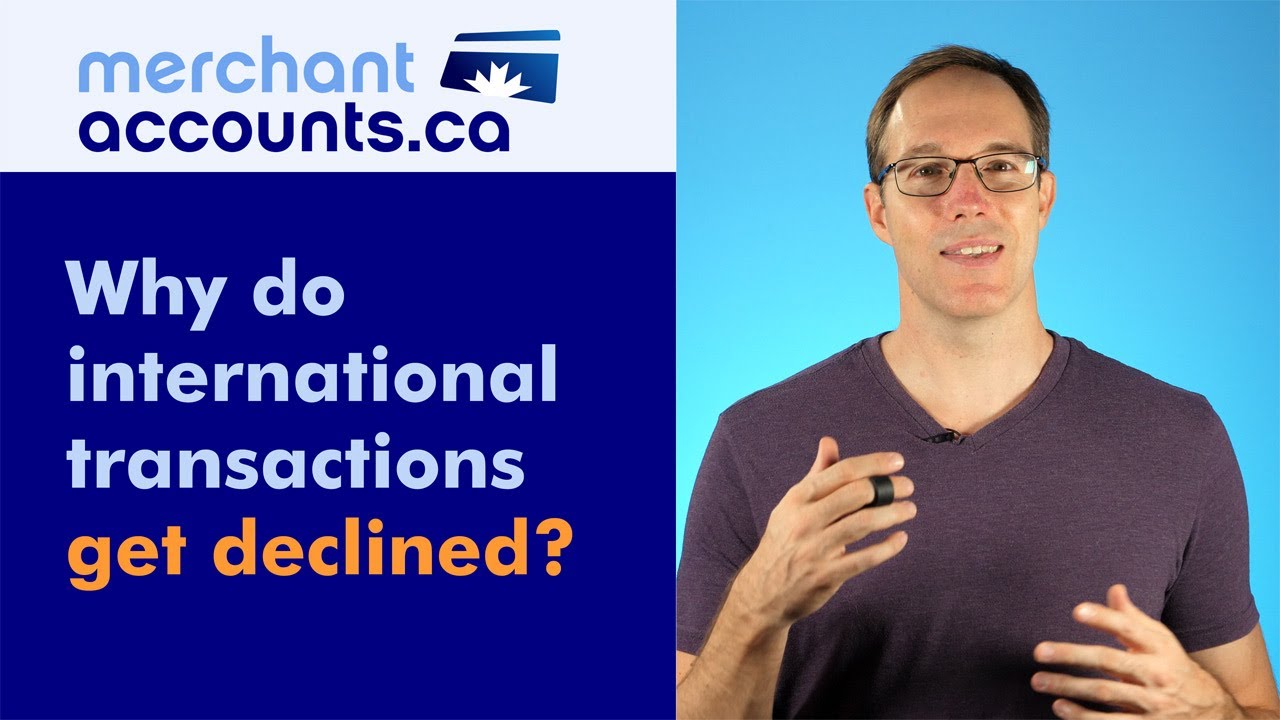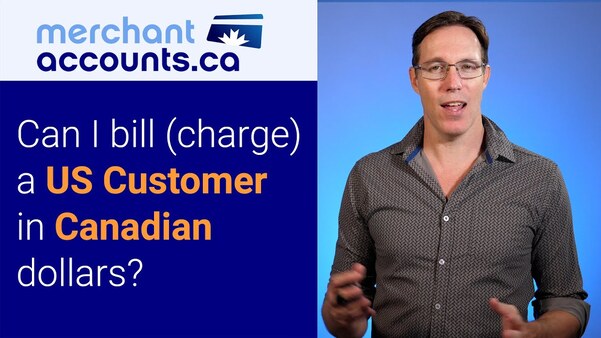May 21, 2014
by David Goodale
What Are The Cross Border Fees On A Credit Card Processing Statement?

It used to be the case that credit card processing rates were not impacted by the location of the cardholder. This was in the earlier years of e-commerce. The reason why this has changed is because Visa and MasterCard now assess cross border fees to the credit card processor. Whenever you process a foreign transaction your credit card processor must either absorb the cross border fee that is assessed by the card brands, or pass it onto the merchant. When you look at your statement in some cases it will refer to a "foreign transaction fee", in other cases a "cross border fee", but they both mean the same thing.
In this article we will explore how much cross border fees are, when you should pay them and not pay them, and how to avoid them in some situations.
When do cross border fees occur?
When a credit card transaction is processed Visa and MasterCard will look at two things:
| 1) | What country was the credit card issued in? For example, the customer might be American and purchase using a credit card that was issued by Wells Fargo in the USA. | |
| 2) | What country is the merchant account issued in? When you apply for your merchant account you must provide your business address. This will determine what country your merchant account is based in. For example, the business address might be registered in Toronto, Canada. That would make it a Canadian domiciled merchant account. | |
In the above example the credit card was issued in the USA by Well's Fargo. The merchant account was issued to a business in Canada. The transaction crosses a border, so a cross border fee would be assessed on the transaction.
An easier way to think of it is like this:
What country is your business located in? If you process a transaction for a customer located anywhere on earth other than the country your business is registered in, then a cross border fee will be assessed.
How much are cross border fees?
There is some confusion as to how much a cross border fee actually is. The reason for that confusion is the amount of the cross border fee fluctuates depending on the criteria of the transaction. Fortunately, it's quite easy to understand. The amount of the cross border fee depends on the currency that the transaction is processed in.
If you sell to an international customer in their local currency:
Cross border fee = 0.80%.
If you sell to an international customer in any currency other than their local currency:
Cross border fee = 0.40%.
Let's explore this with a few examples. In this example you are a Canadian based merchant with a business located in Toronto, Ontario, Canada.
| 1) | You make a sale online to a customer located in the USA for $100 CAD. Pay attention to the currency of the transaction because it matters. The currency of the transaction is Canadian dollars. The transaction hits their card in Canadian dollars. (Behind the scenes that customers card issuing bank will take that CAD amount and convert it into USD, displaying the original CAD amount and the conversion rate on the statement). In this example, the US based customer was charged in CAD. That's not the cardholders local currency, so the cross border fee is 0.40%. | |
| 2) | It is easy for Canadian merchants to get a US dollar merchant account. This will enable them to bill their customers directly in USD (avoiding the conversion fees that appear on your customers credit card statement). Many of our clients bill their customers directly in USD. Let's go through the same example again, but this time pretend our Canadian based company used their US currency merchant account so that the customer was charged $100 USD. If that were to happen, because we billed an international customer in their local currency, the cross border fee assessed from the card brands is 0.80% | |
The initial reaction may be that it's better not to bill a customer in their local currency because of the higher cross border fee when billing in a local currency. However, this is a short sighted view because being able to charge a customer in their local currency provides the customer with increased comfort, confidence, and allows a savvy marketer to create a better relationship and sense of trust with the customer. Despite a 0.40% cost difference it is most often better to bill the customer in their local currency. However, it's also hard to maintain a laundry list of different currencies so my advice is to consider multi-currency processing in territories in which your business is particularly active. This will allow you to make a concerted effort to win clients and increase market share in that territory. For example, if your company is very active in Britain it makes sense to bill those customers in GBP. However, if you only had 3 or 4 sales per year to customers located in Australia it wouldn't make sense to go to the effort of setting up AUD processing. Multi-currency processing is a fantastic tool, but like a lot of tools, you have to use it correctly in order to realize the value it provides.
Are cross border fees fair?
Cross border fees are fair in the sense that your credit card processor does not control this, and cannot prevent them from being assessed. When a transaction crosses a border your processor has one simple choice to make: it can either pass the cost increase onto the merchant, or it can absorb the cost. In the credit card processing industry, the rate you receive is driven by volume. A huge company like WalMart is going to have a lower rate than a startup business selling fishing rods online. It's often the case that small businesses prefer a simple flat rate. If the processor has enough margin above interchange built into their discount rate they may choose to absorb the cross border fee. (For clarity, in order to do this without taking a loss the merchant must be paying a rate of at least 0.80% above interchange). Unfortunately, for most established merchants they will have a rate of lower than 0.80% above interchange. In these cases the processor cannot absorb the cost because if they did they would end up losing money on that transaction.
Many merchants do not realize that how you structure your business will play a huge role in your credit card processing costs. For smaller businesses, it doesn't make sense to try to "beat the system", but larger businesses can actually establishing their payment acquiring in such a way as to leverage the lowest interchange possible in several regions. This is an area in which Merchant Accounts.ca has perhaps some of the highest level of expertise on the planet.
How to avoid cross border fees?
As mentioned above, if you operate a larger business you can take advantage of your corporate structure to:
| i) | Eliminate cross border fees. | |
| ii) | Take advantage of preferential interchange rates in different territories. | |
It's beyond the intended scope of this article to talk in too much detail about interchange structure, but we can certainly talk about how to eliminate cross border fees. (For the sake of mentioning it, if you operate a business and do want to structure your business intelligently to optimally qualify for the lowest interchange rates by region, contact us.
As written above, there is no way to trick the system into thinking you are a domestic merchant when you are not. However, there is nothing stopping your from legitimately becoming a domestic merchant in all the territories in which your business is active.
For example, let's pretend you had a Canadian company based in Toronto, Ontario. Like many Canadian businesses, you might make a lot of sales into the USA. If your business processes smaller credit card volumes (for example, $10,000 per month or less) the cross border fee isn't going to add up to that much money. Don't get me wrong - nobody likes paying it. But even at $10,000/month in sales, 0.80% of that amount would only add up to $80. Not enough to lose sleep over.
However, let's adjust this example and pretend your business makes $500,000 in sales per month into the USA. All of a sudden the cross border fee becomes less of a mosquito bite and more of a bee sting. The cross border fee in this example would work out to $4,000. At the end of the year this would tally up to $48,000 in cross border fees. At this point it might make a lot of sense to structure your business so this doesn't happen. The truth is that it's actually simple to do, it's just a matter of whether you want to deal with the administrative headache. In order to stop this fee from happening (in our example) the Canadian company would need to open some sort of US incorporation of subsidiary. The main point is it has to open some sort of legal US business entity. Then, with the new US based business entity you could apply for a new merchant account. Because the business associated with that merchant account would be US domiciled it would mean that cross border fees would no longer apply.
There are some downsides to this approach though. Some considerations before doing this:
| i) | The big one is the tax issues. Being a payments company, we are not qualified to give out tax advice. However, by carrying on trade through a foreign corporation you may incur tax liability in that jurisdiction. In our example above, the Canadian company might find they have increased tax liability with the IRS by maintaining the US business entity. For the sake of mentioning it, with the dual-taxation treaty between Canada and the USA (and a similar treaty shared between many other countries) it may not be much of an issue, but it is very important to consult with a tax specialist before pulling the trigger on something like this. It is worth asking if the new business entity can act as a billing agent for the parent company. In a situation like that the new foreign corporation could remit most or all of the funds back to the parent company after the transactions are processed. This might enable the company earnings to still be taxed in your domestic country. However, these are tax issues that I am not qualified to consult on, and must be addressed with a tax specialist. | |
| ii) | On paper, the new business entity may appear as a startup. From an approval perspective this could make it a bit more challenging to get approval for the merchant account. For that reason, you should make sure you are working with a credit card processor that can leverage your processing history with the parent company in order to achieve approval for the new business entity in the foreign territory. This sounds complicated, but in plainer English it means make sure you have a dedicated contact at your chosen credit card processor who is knowledgeable about cross-border e-commerce and gives you good support. | |
| iii) | If you are an e-commerce based merchant with transactions occurring on your website, you would ideally hope that you can continue using the same payment gateway when you get your new merchant account in the foreign country. This may be possible in some cases, and will not be possible with others. Contact your merchant account provider to find out if that will be possible. (If you don't have a merchant account provider that specializes in international e-commerce, contact us!) | |
Summary
As you can see, cross border fees are not the fault of the processor, and are impossible to avoid without registering a local business in each territory that your business is active in. In some cases it's very clearly worth the effort of establishing a domestic merchant account in a particular country (which would be the case for businesses that do a lot of volume), and in other cases it may be less clear because the cost savings on the cross border fee may be offset by the cost of opening and maintaining the foreign corporation.
By being of aware of how much the cross border fees are, and when they should be applied, you can be much more confident that you are in control your costs, and are now armed with the knowledge to intelligently deploy processing capability for the international portion of your e-commerce payments.
Related Topics
March 03, 2017
It's very common for Canadian businesses to sell online in US dollars. However, many Canadian business owners do not realize that it's easy to receive your deposits from credit card sales in USD without having to convert it into Canadian dollars.
November 25, 2022
If you sell to customers outside of your country then you are doing international sales. This type of transaction, where the payment is across borders, incur extra fees from Visa and Mastercard. In this video David explains the criteria that determine if a transaction is cross border or not, and how much those fees are likely to be. (As well as touch on the topic of processing and settlement currencies).
September 16, 2021
You may have noticed a lot of declined transactions when selling to international customers. In this video we explain why international (cross border) e-commerce transactions get declined, and what you can do to minimize it.
July 08, 2019
If your business transacts across borders, how do you ensure that you've optimized your payments solution? Our CEO David Goodale sets out to demystify the most complex area of payments: multi-currency and cross-border e-commerce payments. This is a detailed exploration of everything to know about multi-currency payment processing.
June 24, 2022
Businesses can save a lot of money by routing their credit card transactions intelligently. This technique is called 'interchange optimization'. If you process a high volume of credit card transactions to customers located in different countries the cost savings can be very significant. In this discussion David explains the concept of interchange optimization and how it works.
June 24, 2016
Some card issuing banks have a fee that causes problems for online businesses when selling to international customers. We are talking about the extra international transaction fees that some card issuing banks charge to their cardholders. In these cases customers may complain if their credit card was charged more money than they expected.
February 19, 2025
When you are selling to a customer that's located in another country you don't need to worry about exchange rates. If your customer is from another country (like a Canadian business selling to a US customer) you can issue the charge as normal. The customers card issuing bank will calculate and assess any exchange rate that is necessary. You will receive the exact amount of money that you expect. David also explains the option of multi-currency processing so that there is no exchange because you actually can choose (if you want) to charge your foreign customers in their local currency.
Learn How To Lower Your Credit Card Processing Fees
If you haven't reviewed your processing costs in a while take a moment to view our rates.
View Rates









